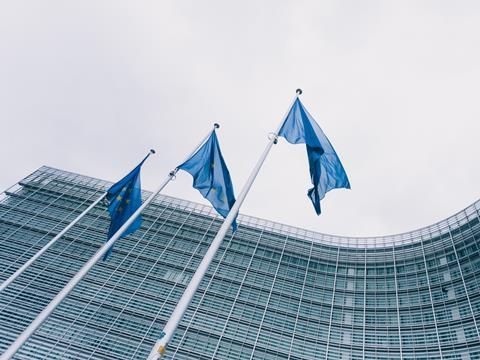
Seventy-three industry leaders from almost twenty industrial sectors have supported the Antwerp Declaration for a European Industrial Deal, which calls for enhanced competitiveness, sustainability, and resilience for basic industry sectors in Europe in light of economic and political conditions.
The Declaration is the result of European leaders, trade unions, and basic industry players – including Cepi’s chair Marco Eikelenbloom, vice-chair Ilkka Hämälä, and COBELPA chair Pierre Macharis – coming together at a European Industry Summit in pursuit of clear, predictable, and confident policy for the European industrial landscape. It was then presented to Belgian Prime Minister Alexander De Croo and Ursula von der Leyen, president of the European Commission.
Aiming for a revitalized industrial landscape in Europe, the Declaration highlights the importance of dialogue and a ‘strong industrial fabric’ to ensure that a green transition is fair to everyone. It uplifts collaboration as a means of overcoming roadblocks and driving industrial investment in Europe, thus setting the stage for a European Green Deal.
Ten concrete actions are suggested to achieve this goal. Among them are streamlining legislation, simplifying the State Aid framework, and the integration of the EU Industrial Deal into the broader European Strategic Agenda.
It continues to assert that Europe should form strategic partnerships and introduce robust infrastructure to provide accessible and affordable low-carbon energy. Stronger support for EU projects is recommended.
The continent should be self-sufficient when it comes to raw materials, it adds, and must foster demand for sustainability-minded products as well as nurture innovation. In its view, the European Single Market should be uplifted and utilized, while the process of policymaking should encourage investments and develop a cohesive internal structures to implement new rules effectively.
The Declaration’s signatories include representatives from the chemical, pharmaceutical, paper, steel, mining, aluminium, glass, zinc, metals, textiles, refinery, cement, lime, fertilizer, ceramics, industrial gases, and biotech sectors, among others.
A previous joint letter made a similar call for the EU’s Packaging and Packaging Waste Regulation to preserve Europe’s internal market basis so that co-legislators can achieve its environmental and economic objectives.
Yet EUROPEN was one of 100 European packaging industry associations voicing their concern that upcoming policies could fracture the Single Market and disrupt supply chains with a patchwork of nation-specific restrictions.
A third statement noted the Packaging and Packaging Waste Regulation’s references to ‘state-run producer responsibility organizations’ and advocated for their removal – cautioning that their inclusion could open legal loopholes and threaten the EU’s recycling targets and decarbonization goals.
If you liked this article, you might also enjoy:
The Lidl approach to packaging sustainability
How did Brazil achieve its 100% aluminium can recycling rate – and can it be replicated in the EU?
Experts have their say on the EU’s Packaging and Packaging Waste Directive revisions
A deep dive into the most important packaging sustainability trends and solutions











No comments yet